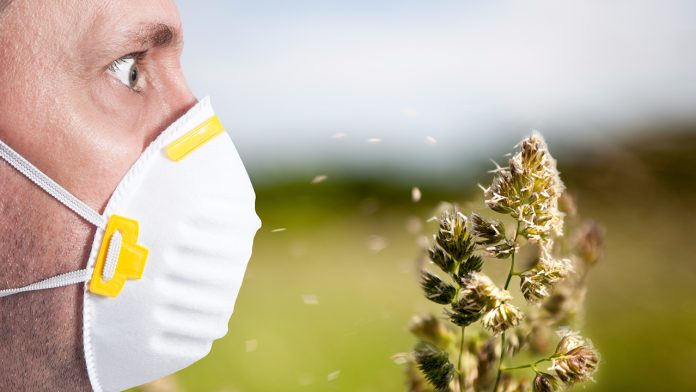Spring allergy is a general allergic disease diagnosis given to some allergic symptoms seen primarily in the nose, eyes, face and skin as a result of the increase in the amount and variety of pollen in the air during the spring months.
spring allergy causes
Spring allergy occurs as a result of the immune system detecting pollen as harmful and producing antibodies against them. Thus, pollen or other allergens are recorded as harmful in the memory of the immune system. Once the antibody is produced in the immune system, the substance called “histamine” is automatically produced every time the body encounters the same pollen or pollen groups, and allergic disease symptoms appear. The more allergens a sensitive person encounters, the greater the body’s reaction to it, namely the amount of histamine released, and the more severe and long-lasting symptoms of spring allergy.
Precautions to be taken for spring allergies
Pollen is in the air at different rates at different times of the day. Pollen density is less if the weather is rainy and higher if it is windy and sunny. In the morning, the pollen density is quite high. For these reasons, people with allergies should not stay outside too long on windy and sunny days, during this time, eyes should be protected by wearing glasses, and if possible, they should walk around by covering their mouth and nose. When pollen-sensitive people come home, they should take off their clothes in another room and minimize the pollen on their whole body, preferably by taking a shower, preferably their hair, since a lot of pollen accumulates in the hair. It is recommended to wash the mouth, nose and face with water as soon as possible, especially after entering each indoor environment from the outside. Although pollen is more common outdoors, it can also be found indoors. It is recommended that pollen-related precautions be taken indoors as well. Laundry and towels should be dried indoors, not outside.
Alternative herbal treatment methods
The first treatment approach and rule in allergic disease is to stay away from the factors that are called allergens and cause allergic diseases. Drug treatments are recommended for those who show signs of allergic disease despite protection. Even if the herbal treatment methods for spring allergy are not completely curative, some herbal supplements can be used to relieve the complaints of allergic cough and to reduce nasal complaints in patients with allergic rhinitis. Among them; Quince tea, Echinacea Tea, Orange tea, Rosehip tea, Honey milk, Molasses, Linden, Ginger, Sage and some herbal mixture throat lozenges can be recommended. In addition, the consumption of citrus fruits, fruits and vegetables, as well as regular nutrition and sleep will play a role as a regulator of the body’s immune system.


